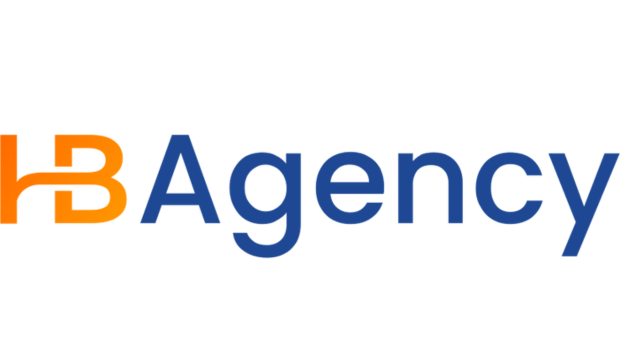Whatever happened to pensions and the financial security they provided?
Now, unless you’re a teacher, government employee or on staff at a large company, you probably don’t have a pension.
Instead you have a 401(k), a retirement account that grows incrementally with contributions from you and your employer, or a self-funded individual retirement account or IRA, plus a savings account, checking account, maybe a separate brokerage account and perhaps an annuity that will spin off a certain amount each year.
Will you outlive your money?
There’s a complex and intimidating financial universe to navigate.
Your financial security during retirement is the result of the decisions you made and make now, your long- term saving and spending habits, expenses you didn’t foresee and can’t escape, and assets such as your home or other real estate, plus cash in the bank and the money you put in stocks and bonds or under the bed.
It’s enough to keep you awake at night.
After 401(k)s replaced pensions in the 1970s and 1980s, “A big thing to take away is the burden shifts from the employer to the employee being willing to save and invest over time,” said Kyle Labelle, a financial planner at Milestone Financial Planning in Bedford.
“It’s the result of companies shifting investment risk and the risk of you outliving your assets to you,” said Thomas Stephen, a financial planner at Glenwood Investment Group in Manchester. “Companies were saying, ‘We’re no longer responsible for your retirement income. We’ll help you, but you need to be more responsible.’”
Beyond monthly Social Security checks in our later years, having enough money to last a lifetime means cobbling income together from a variety of sources, including from part-time work.
It requires vigilance, planning and learning about your options. It starts when you’re young and entering the workforce and continues through your non-working years.
Social Security
Retirement stability begins with Social Security and knowing what you’ll receive when you start collecting between ages 62 and 70.
The Social Security Administration can calibrate your benefits at different dates and ages. It’s important to “run that statement to see what you’ll get,” Stephen said.
The closer to age 70, the bigger your monthly take. But Social Security’s rules and implications aren’t always clear.
For instance, if you continue to work while collecting, that can add to the amount you receive because your benefits are based on your highest 35 years of income.
So, if you had “zero” or low-earning spells, you might be able to increase your Social Security allotment by working longer, and replacing zero years with earning years.
“Delaying Social Security to 70 can be a wise decision,” said Labelle.
“As late as you can, for those that can. You’ll have more income coming in from Social Security alone.”
Understanding
In a 401(k), your employer selects a financial management company to manage contributions made by you and your employer. You select from a pre-approved menu of investment options.
IRAs can be used to supplement 401(k)s or they can substitute for them, and they’re essential if you’re self-employed or working as a consultant or independent contractor. In an IRA, the mix and choice of investments are yours, with guidance as you desire from a financial planner.
It’s important to consider the tax implications. When contributions are made before taxes, taxes are paid when you take the money out. Roth IRAs and Roth 401(k)s can be attractive because the money put in them comes from after-tax income, which makes them “tax free on growth and withdrawals for life,” Stephen said.
For those new to retirement planning and investing, Morningstar and Vanguard provide valuable retirement information online in easily digestible articles, said Labelle. Schwab MoneyWise can help with financial literacy.
It’s important to have a long talk with the mirror and your loved ones about how much risk you’re comfortable taking.
If you’re completely risk averse, or want something that spins off a guaranteed amount in your later years, you might want to consider an annuity, said Stephen. But management fees can be high and the fine print can be confounding. It’s buyer beware.
“Annuities are ultimately a contract with that annuity company,” Stephen said. “If you’re signing on the dotted line, make sure you have a good understanding of it.”
Don’t be afraid to ask basic or probing questions, especially if you’re new to the contract language.
Start saving early — and keep going
Unforeseen events and expenses can get in the way, but whenever possible, financial planners say to start saving early in your working life and don’t quit when you’re close to retiring — or necessarily even during retirement.
“Money is a tool to get what you want out of life,” said Labelle. “For those looking to stop work and enjoy life in retirement, maybe they want to look at some of those big vacations and instead save for the long term.”
“The longer that someone is working, the less they need to save,” said Labelle. Someone who stops working at 70 may have to cover 10 to 15 years of living expenses, maybe more, he said. “The longer your retirement, the more you need.”
In general, and because of the shift from the pensions to 401(k)s, it’s extremely important to start contributing to a retirement account when you’re young.
“Time is an asset, just like anything else,” said Stephen.
“The earlier you start, the less work you’ll have to do, and the more the market will do for you,” said Mark Levesque, a certified financial planner and independent branch leader at Charles Schwab in Nashua.
401(k) plans differ between employers. The contribution percentage typically ratchets up over time, until a match of 10% is reached. But that may not be enough to fully fund your retirement, even with Social Security.
Labelle, like most financial advisers, believes in holding an investment mix of stocks and bonds, including some with higher risk, which have greater returns and more potential to beat inflation.
Going into retirement, it’s important to scrutinize your expenses.
Your plan “ultimately comes down to cash flow, what’s coming in and going out. If you’re making the decision to stop working, it’s important to know how much money you need and how much you can safely withdraw” from your retirement accounts and still have enough left to generate future income, Stephen said.
“In times like these, it makes sense to look at how long your horizon is. If you’re 65, look at 20 years. If you’re 75, it’s time to move into safer investments. The big risk is how long you’re going to live,” said Labelle. You need a balance between stocks and bonds in order to balance risk.
Take a look at the long haul
People planning for retirement often forget that expenses such as college tuition and mortgage payments will disappear or shrink substantially. And that frees up cash for investing.
Later-stage investing depends on the level of risk you’re willing and able to tolerate, which differs between individuals, their ages, personalities and financial wherewithal.
For someone with a 25-year investment horizon, a portfolio of only low-risk investments can hold back necessary growth, financial planners warn.
Spending is your biggest lever. What’s essential and what is not?
When folks head into retirement, and “the less flexible their spending is, the more we might reduce their stock risk,” Labelle said. “While we take a little off, it’s important to remember they’re also planning for decades ahead.
“You want to keep that in mind when you’re watching what you’re doing, rather than watching the daily ups and downs of the market,” he said.








